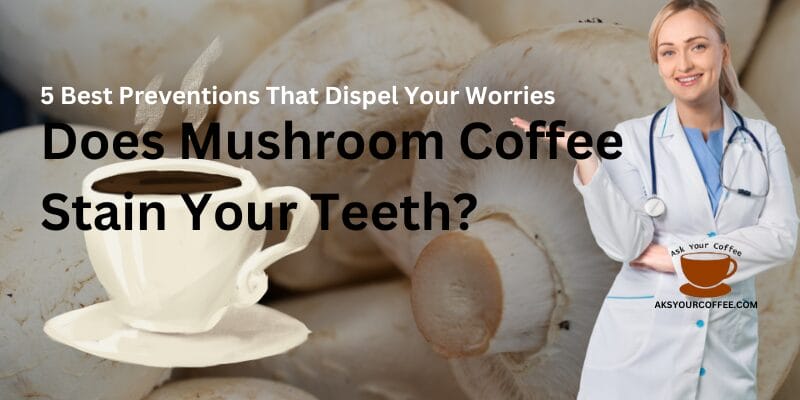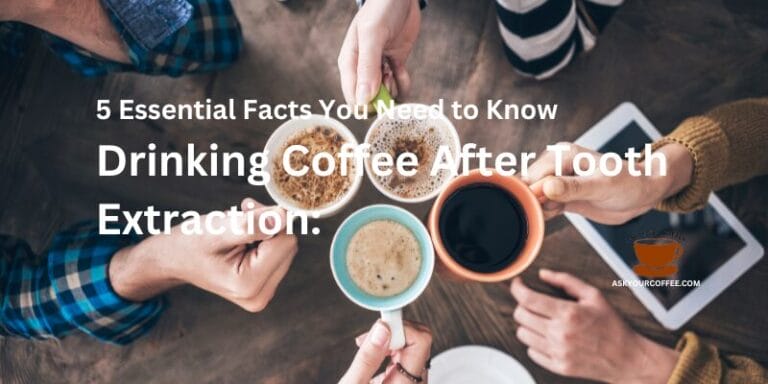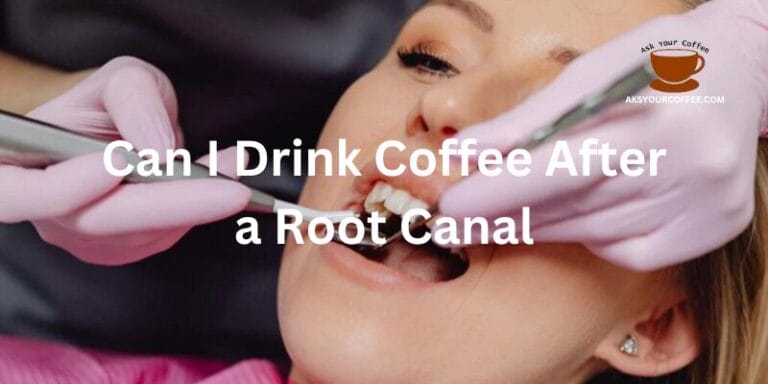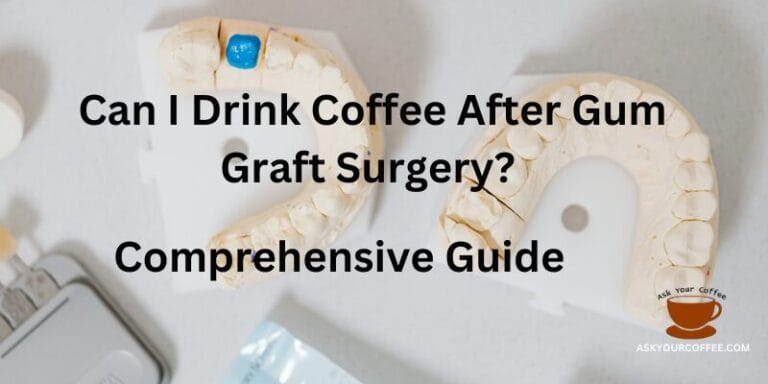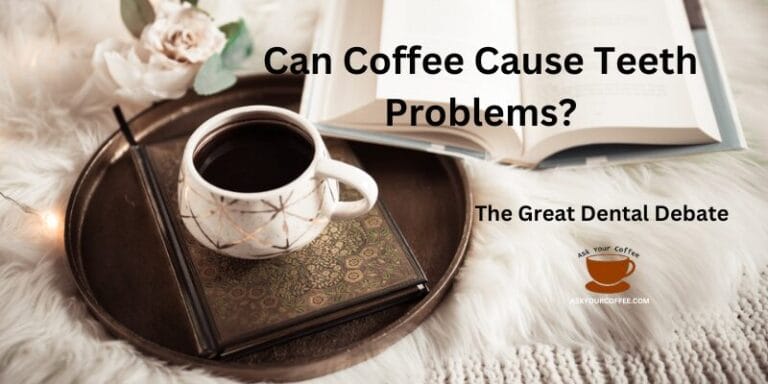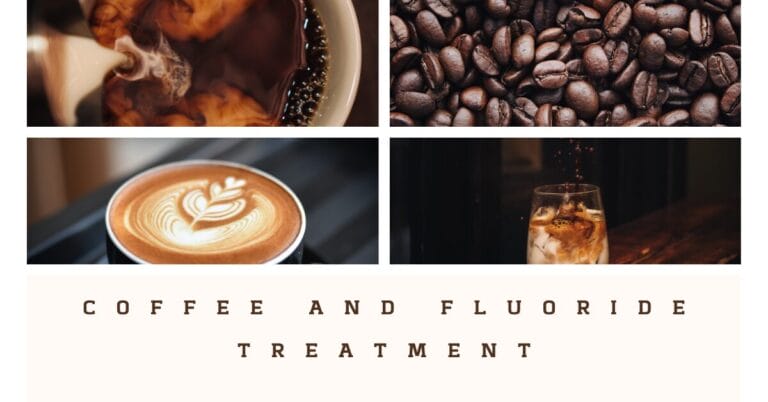Does Mushroom Coffee Stain Your Teeth? 5 Best Preventions That Dispel Your Worries
Does Mushroom Coffee Stain your pearly whites like traditional java? The world of wellness beverages is abuzz with claims of coffee’s mushroom-infused cousin being a gentler alternative.
In this exploration, we look beyond the earthy aroma and touted health benefits to address the lingering question on every coffee lover’s lips: Can sipping this trendy brew leave a mark on your smile?
Join us as we delve into the curious case of mushroom coffee’s relationship with dental discoloration.
Disclaimer: The information provided in this guide is for general educational purposes only and should not be considered professional medical advice. Always consult with a dental professional for personalized guidance.
Table of Contents
What is Mushroom Coffee?
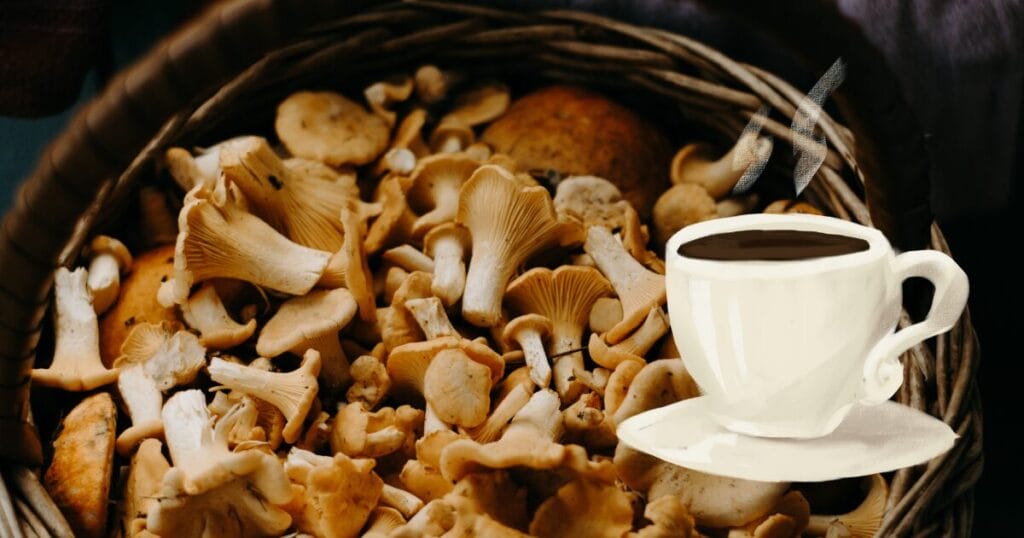
Does Mushroom Coffee Stain? before starting to answer this question we should understand What mushroom coffee is?
Mushroom coffee blends traditional coffee grounds with extracts from medicinal mushrooms, such as Chaga, Lion’s Mane, or Reishi. These fungi are renowned for their potential health benefits, including boosting the immune system and improving focus and concentration. The flavor is surprisingly smooth with a nutty undertone, often less bitter than regular coffee.
While the health implications have been widely discussed, assessing its impact on tooth enamel deserves attention. Emerging discussions suggest that mushroom coffee may be less acidic—and consequently less staining—than its conventional counterpart.
For a deeper understanding, check out Healthline’s exploration of what mushroom coffee is and how it compares to regular coffee.
Can Mushroom Coffee Cause Teeth Problems?
To ascertain the impact of mushroom coffee on teeth, it is essential to understand how staining occurs. Conventional coffee contains tannins, which can adhere to dental enamel and lead to discoloration.
Mushroom coffee is often said to contain fewer tannins, which may reduce its potential to stain teeth. However, it’s not just about the tannins; the overall acidity and consumption habits also play a vital role in staining.
It’s worth noting that proper dental hygiene can mitigate much of this risk. For those interested in maintaining a bright smile while enjoying their cup of joe, here is a resource delving into the broader subject of coffee and dental health.
To further explore the nuances of mushroom coffee and dental hygiene, refer to our in-depth guide Can Coffee Cause Teeth Problems on the topic.
Does Mushroom Coffee Stain Your Teeth?
The straightforward answer is that mushroom coffee, by its coffee component, can still contribute to the staining of your teeth.
However, it is generally believed to be less potent in causing discoloration than regular coffee due to the lower concentrations of staining tannins, as the mushrooms can dilute the strength of pigments that typically lead to stains.
In simpler terms, while it’s not completely stain-free, mushroom coffee may be a kinder choice for those concerned with keeping their teeth gleaming. It’s the coffee part of the brew that holds the potential to stain, and not the mushroom extract, which is typically neutral in this regard.
Simple Answer.
Yes, mushroom coffee can still stain your teeth, but it’s likely to be less severe than regular coffee. This is because the mushroom component may help to reduce the concentration of pigments that cause staining. So, if you’re looking to keep your smile bright, mushroom coffee could be a better option compared to traditional coffee.
For additional tips on keeping your teeth stain-free, consider exploring the recommendations from the American Dental Association on teeth whitening and oral care.
Does Ryze Mushroom Coffee Stain Your Teeth?
When pondering the effects of Ryze Mushroom Coffee on your teeth, one might anticipate lesser staining due to its lower acidity levels compared to regular coffee. However, the potential to stain teeth still exists, as mushroom coffee contains pigments that, over time, could adhere to dental enamel.
To maintain a gleaming smile, it’s wise to practice good oral hygiene, including regular brushing and, perhaps, enjoying your coffee through a straw. For further reading, Colgate offers excellent advice for preventing coffee stains on teeth and keeping your smile bright.
Learn more about Ryze’s ingredients and their potential dental implications by visiting Ryze Mushroom Coffee’s official FAQ page.
Factors Contributing to Teeth Staining by Mushroom Coffee.
When considering what leads to teeth staining from mushroom coffee, we must first comprehend traditional coffee’s inherent staining properties.
It is the organic compounds found within coffee, primarily polyphenols like tannins, that affix to tooth enamel and result in discoloration over time. Given that mushroom coffee blends these elements with mushroom extracts, the intensity of staining depends on the concentration and ratio of coffee to mushrooms in the blend.
- Tannin Concentration: The lower tannin content in mushroom coffee (read more) implies less chromogenic substance to adhere to teeth, reducing its staining potential relative to regular coffee.
- PH Level: Acidity in beverages can exacerbate staining by eroding enamel and making it easier for pigments to stick. Mushroom coffee often has a milder acidity (check the PH values).
- Temperature: Hot drinks can cause teeth to expand and contract, allowing stains to penetrate more easily. Drinking mushroom coffee at a lower temperature may prevent this (understand thermodynamics in dentistry).
- Contact Time: The longer a staining liquid stays in contact with teeth, the worse the potential stain. Sipping slowly may increase discoloration (learn about dental stains).
- Frequency of Consumption: Regular consumption of any coffee, including mushroom variants, can lead to more noticeable staining over time (discover consumption effects).
- Oral Hygiene: Good oral hygiene practices can mitigate the effects of staining. Brushing teeth after consuming mushroom coffee may help maintain whiteness (explore oral hygiene tips).
Addressing these factors can help to keep your teeth stain-free while enjoying the unique benefits that mushroom coffee has to offer.
How Mushroom Coffee Stain Your Teeth? Example
When considering how mushroom coffee might stain your teeth, it’s helpful to think about the example of a white shirt.
Just like that shirt, your teeth have a porous surface that can easily absorb colors. The coffee part of mushroom coffee contains compounds called tannins which, much like tea or wine, love to cling onto these surfaces.
Over time and with regular sipping, these tannins can leave behind a faint, yellow hue, much like a white shirt might begin to look less bright after repeated exposure to colored substances.
However, with mushroom coffee often having a lower tannin concentration, the risk of your teeth taking on these coffee “shadows” is reduced compared to regular coffee. Regular dental hygiene can further ensure that any potential staining doesn’t become a permanent reminder of your last cup.
How to Prevent Staining from Mushroom Coffee
Preventing tooth discoloration while still enjoying your favorite mushroom coffee blends is achievable with a few practical habits. To minimize the risk, consider the following easy-to-adopt tips:
- Rinse With Water: After your coffee break, simply swish your mouth with water to wash away any potential staining compounds. This can help reduce the chances of them settling on your teeth.
- Use a Straw: Drinking coffee through a straw can bypass your teeth to a large extent, lessening direct contact with tannins.
- Regular Dental Care: Maintain a robust oral hygiene routine, including brushing twice daily and flossing. Using whitening toothpaste or toothbrushes with stain-removing bristles can offer additional protection.
- Dairy or Dairy Alternatives: Add a splash of milk or a milk substitute to your coffee. The proteins in dairy can bind with tannins, preventing them from sticking to your teeth.
- Professional Cleanings: Schedule regular cleanings with your dentist, as they can remove surface stains before they become permanent.
For more detailed guidance on maintaining a bright smile, explore resources from the American Dental Association on teeth staining and prevention. Additionally, for those keen to understand the science behind tooth enamel and staining, here’s an informative link to Colgate’s Oral Care Center.
Remember, the key to keeping your teeth stain-free doesn’t require giving up mushroom coffee altogether but instead, lies in mindful drinking habits and consistent oral care.
The Bottom Line.
In summary, while mushroom coffee may present a reduced risk of staining compared to traditional coffee, it isn’t exempt from contributing to tooth discoloration. A more mindful approach to consuming this trendy beverage, coupled with tried-and-true oral hygiene practices, can help you enjoy its advantages without compromising your smile’s radiance.
By incorporating simple preventative actions such as rinsing with water, using a straw, maintaining regular dental care, and seeking professional cleanings, you can minimize staining risks and keep your teeth looking their best. Embrace these habits to safeguard your smile as you relish the unique taste and potential health benefits of mushroom coffee.
Frequently Asked Questions About Mushroom Coffee and Teeth Staining
1. What is mushroom coffee?
Mushroom coffee is a blend that typically combines traditional coffee beans with medicinal mushroom extracts, such as reishi, chaga, or lion’s mane, aiming to provide health benefits alongside a caffeine boost.
2. Can mushroom coffee still stain your teeth like regular coffee?
Yes, mushroom coffee can still stain your teeth, but it is generally less likely to do so than regular coffee due to its lower tannin content.
3. Why does coffee stain your teeth?
Coffee contains compounds called tannins, which can adhere to the porous surface of your teeth and cause discoloration over time.
4. Is mushroom coffee less acidic than regular coffee?
Often, mushroom coffee is reported to have milder acidity than regular coffee, which may reduce its potential to erode enamel and cause staining.
5. How can you prevent staining from mushroom coffee?
By rinsing with water after drinking, using a straw, adding dairy or dairy alternatives, and maintaining a robust oral hygiene regimen, you can minimize staining.
6. Does the temperature of the coffee affect staining?
Yes, hot drinks can cause teeth to expand slightly and contract upon cooling, which may allow stains to penetrate more easily. So, drinking cooler beverages could prevent this.
7. Does adding milk to mushroom coffee help prevent staining?
Adding milk can help prevent staining as the proteins in milk bind with tannins and prevent them from sticking to your teeth.
8. Will brushing your teeth immediately after drinking mushroom coffee prevent staining?
While brushing teeth is generally good for oral hygiene, it is recommended to wait at least 30 minutes after consuming acidic beverages to prevent enamel wear.
9. Are there any types of mushroom coffee that are better for those worried about teeth staining?
Those concerned about staining should look for mushroom coffee blends with lower coffee content or those that specify having low tannin levels.
10. Can professional dental cleanings remove coffee stains?
Yes, professional dental cleanings can help remove surface stains from teeth, including those potentially caused by mushroom coffee.

